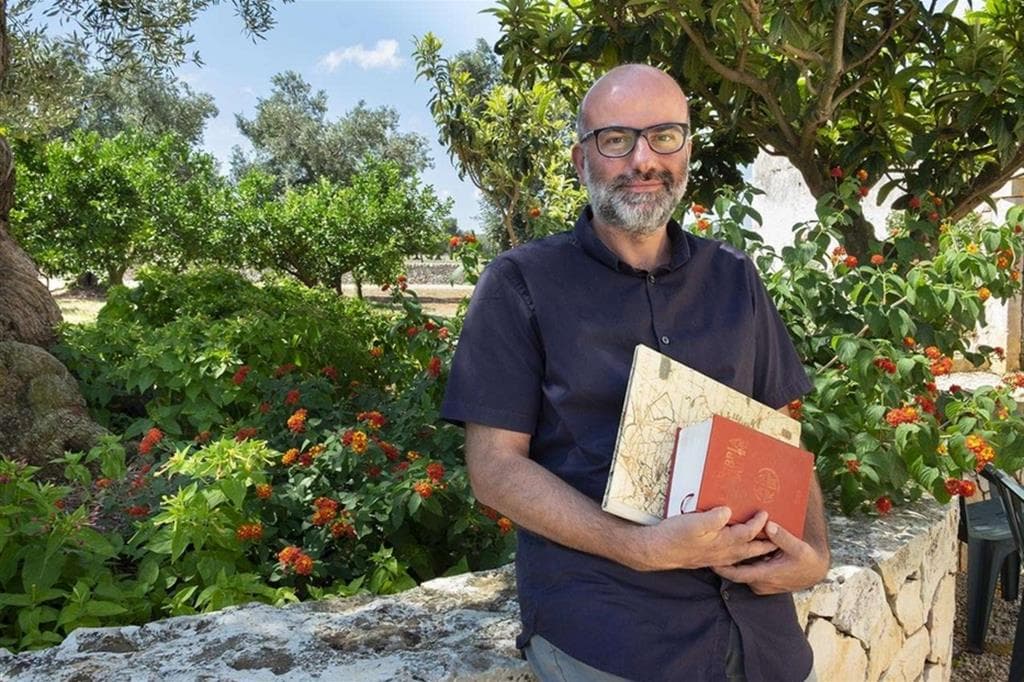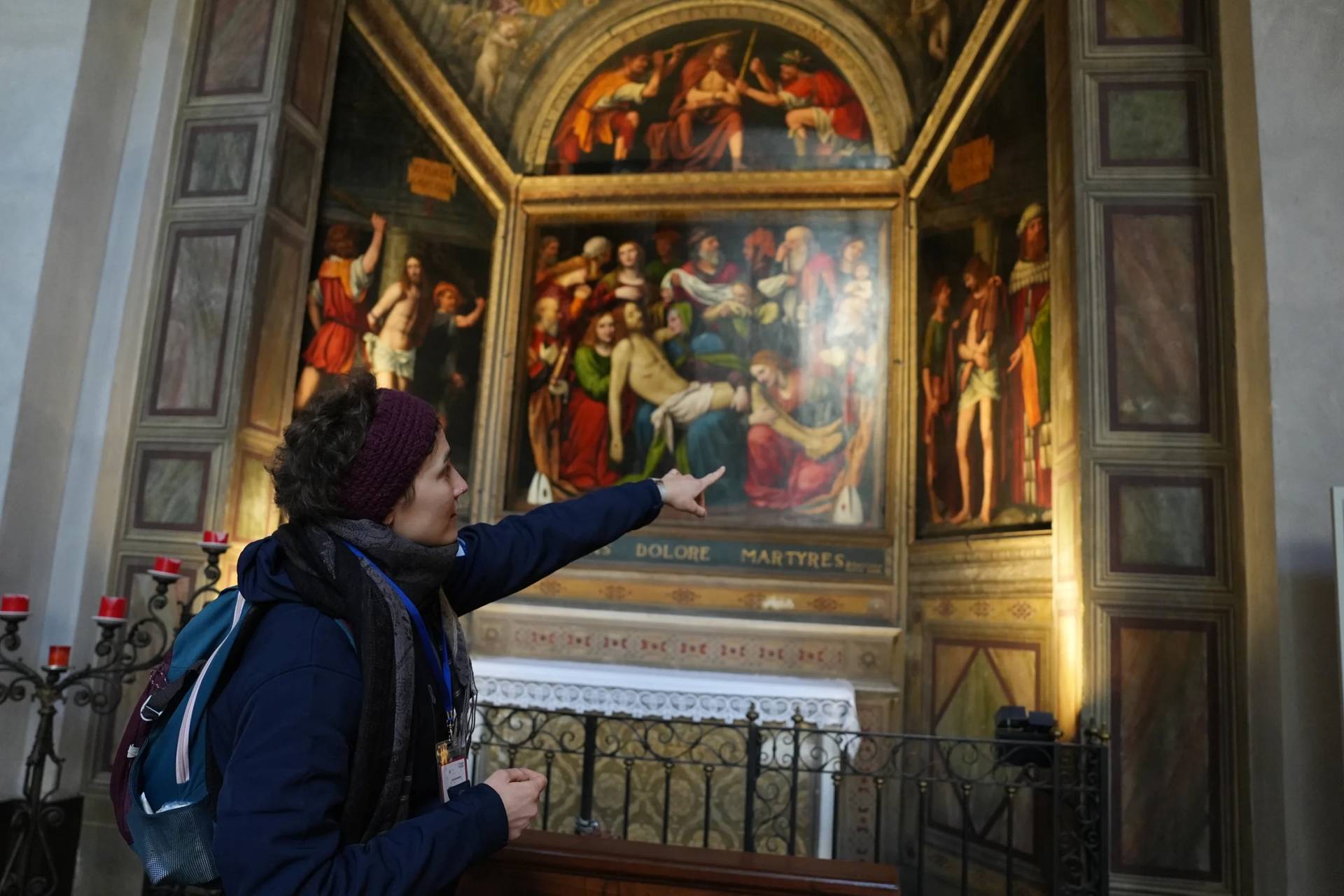ROME – The new prior of the Bose Monastery in Italy has spoken out about the status of the community after a contentious internal deadlock culminated with the exile of its founder last year.
Speaking of the tension inside the monastery and the ouster of Bose founder and longtime leader Enzo Bianchi, the new prior, Sabino Chialà, said the crisis has caused “wounds and struggles that have done so much harm to us and those who believed in us.”
“The community has suffered, those who are here and those who are no longer here have suffered. Above all, the scandal we have caused in people, in friends, in those who could not understand, made me suffer a lot,” he said in a recent interview with Italian newspaper Corriere della Sera.
Chialà, who was elected prior of the Bose Monastery in January, entered the community in 1989, and made his final vows in 1997. He served as head of the community house in the southern Italian town of Ostuni from 2013-2019, and returned to Bose in 2019, where he served as novice master before his election as prior.
He took over for the previous prior, Luciano Manicardi, whose election in 2017 was apparently not welcomed by Bianchi, a lay monk who founded the Bose Monastery in the 1960s as an ecumenical community of men and women belonging to different Christian confessions, but who live a common life of prayer, poverty, celibacy, and obedience to the Gospel.
As the founder and longtime leader of Bose, Bianchi gained international prestige, and was honored by several popes, including John Paul II, Benedict XVI, and Francis.
He stepped down from leadership of the monastery in 2017, but reportedly did not accept Manicardi’s authority as the new leader, causing a climate of internal tension and strife that yielded several complaints to the Vatican, which formally launched an investigation into the community in 2019.
That process culminated with the Vatican ordering Bianchi and three other members of the community to leave. Bianchi refused for over a year, at one point prompting the pope himself to get involved by meeting with the community’s leadership.
Bianchi finally left in June 2021, and now lives in the town of Albiano, in the northern Italian province of Trento, where he has opened a new spiritual center, Casa della Madia, as a place of prayer and contemplation for those who either want to join him in his monastic life or who are passing by and in search of a small retreat.
RELATED: Exiled ecumenical founder opens new spiritual center
He consistently publishes articles and reflections on topics of relevance in Italian newspapers, most of which appear in Italy’s second largest paper, La Repubblica.
Speaking of the community’s internal crisis, Chialà said many people, including past friends, believe that Bose is now “dead,” and unable to recover from its internal turmoil.
While this might be the opinion of some, “if there is a way in which Bose can show that it is not dead, it is by living,” Chialà said, insisting that the real charism of Bose is not Bianchi, but “the brothers and sisters who live there.”
“Bose has always insisted that it was not born out of nothing; it is the daughter of tradition that dates back to the desert fathers,” but took on a special quality after being inspired by the ecumenical movement following the Second Vatican Council, he said.
The monastery grew thanks to the people, including Bianchi, who believed in it and who committed themselves to this lifestyle, joining together from different ecclesial traditions, Chialà said, adding, “This tradition now must continue on its path.”
In terms of the scandal the crisis with Bianchi caused, Chialà said he believes much of it is “psychological,” and that the pain caused, while inevitable, is part of the Christian life.
Asked how Bose can start again, Chialà’s response was “from the women and men of our time.”
“To the extent that we start from concrete people, we avoid any idealization, we see people in their fallibility, and we invest in real capital. Basically, it is what God has done. He believed in man despite his fallibility,” he said.
In this sense, he said humanity must be seen for what it is, “It should not be forced into the cliché of what we can imagine, hope for, or dream of.”
“We believe our dreams are the best thing there can be. Instead, our dreams are always much poorer than God’s,” Chialà said, saying the real problem “is whether we are able to let ourselves be challenged by the unknown, because perhaps you discover that God’s dream is much greater than ours. But I also believe this for our community.”
Given everything the Bose Monastery has endured, Chialà said it is more obvious than ever that the community “is not a human work,” but is inspired by God.
“If Bose has a future, it is because it believes and finds energy, substance, in something that transcends it,” he said, “It doesn’t depend on us.”
Chialà noted that there have been scandals and conflict throughout the life of the church, saying “Christians began to quarrel five minutes before getting together.”
“It is a drama at the heart of the church from the very beginning because it is inside of the human being,” he said, and stressed the importance of looking back at how previous conflicts that arose were resolved.
More than anything, what the community needs is “an act of courage and truth. We start from there, we do not hide it,” Chialà said. Bose has “assumed our fragility, at a dear price. Even our guests and friends who perhaps had us a little too idealized.”
However, the community has moved forward by continuing its daily work and by going back to the sources of monasticism and daily spiritual lives, he said, saying he already sees “a positive outcome in rooting, in remotivating, in rethinking.”
“It is a return to the essential after a time of disarray. If you want, of intoxication,” he said, and stressed the importance of dialogue, especially in Bose, which is composed of members belonging to different Christian traditions.
Chialà said he is still getting used to the idea of being prior of the monastery, and that “as soon as it is no longer necessary, I will be the happiest person to leave. I feel extremely free.”
He denied that there is still a climate of division, saying he has felt “the support and affection of the community” since his election in January, which he said, “helps a lot to exercise ministry in a somewhat complex situation.”
Follow Elise Ann Allen on Twitter: @eliseannallen












